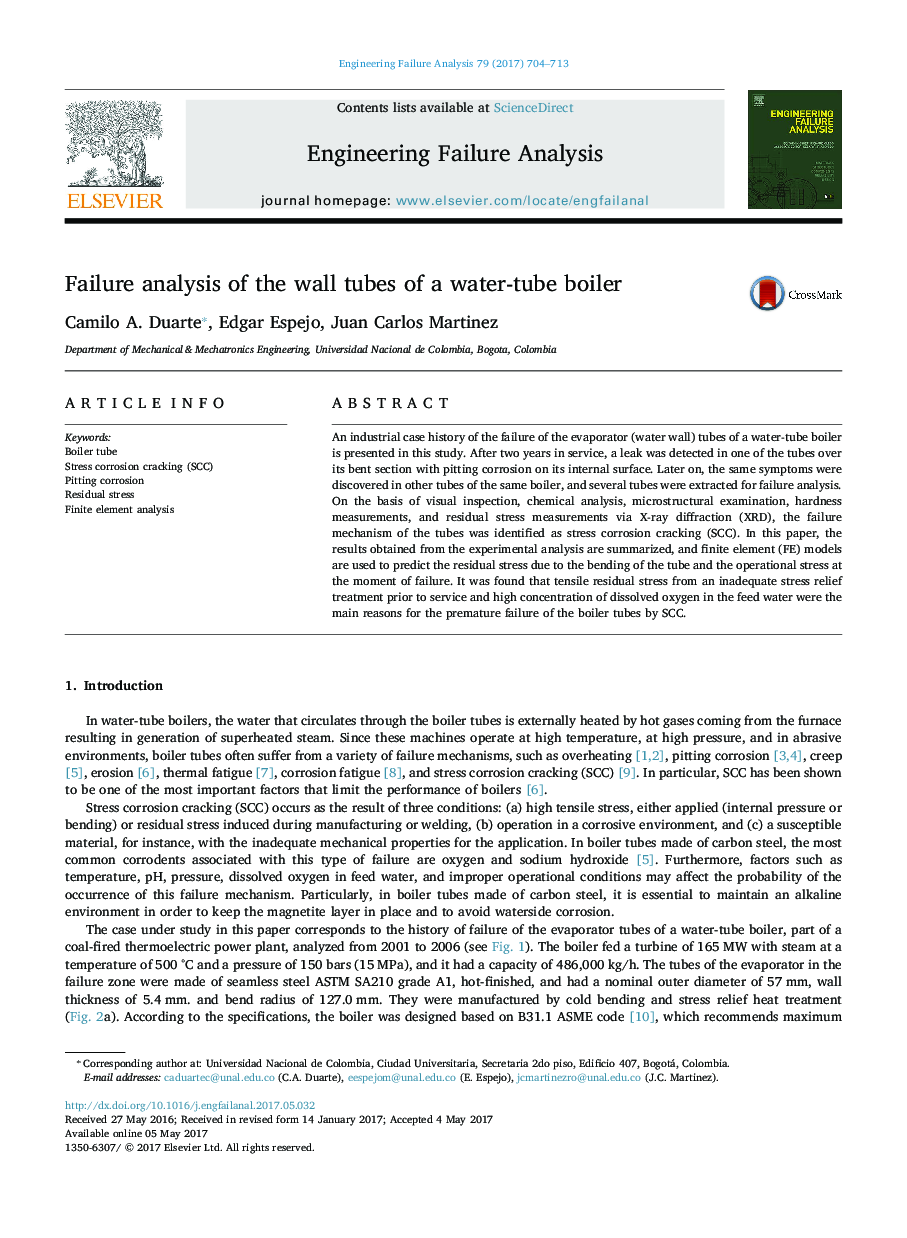| Article ID | Journal | Published Year | Pages | File Type |
|---|---|---|---|---|
| 5013587 | Engineering Failure Analysis | 2017 | 10 Pages |
Abstract
An industrial case history of the failure of the evaporator (water wall) tubes of a water-tube boiler is presented in this study. After two years in service, a leak was detected in one of the tubes over its bent section with pitting corrosion on its internal surface. Later on, the same symptoms were discovered in other tubes of the same boiler, and several tubes were extracted for failure analysis. On the basis of visual inspection, chemical analysis, microstructural examination, hardness measurements, and residual stress measurements via X-ray diffraction (XRD), the failure mechanism of the tubes was identified as stress corrosion cracking (SCC). In this paper, the results obtained from the experimental analysis are summarized, and finite element (FE) models are used to predict the residual stress due to the bending of the tube and the operational stress at the moment of failure. It was found that tensile residual stress from an inadequate stress relief treatment prior to service and high concentration of dissolved oxygen in the feed water were the main reasons for the premature failure of the boiler tubes by SCC.
Keywords
Related Topics
Physical Sciences and Engineering
Engineering
Industrial and Manufacturing Engineering
Authors
Camilo A. Duarte, Edgar Espejo, Juan Carlos Martinez,
